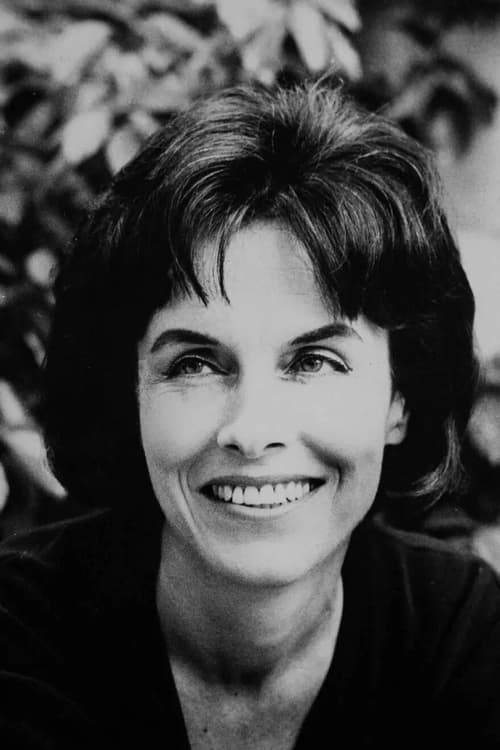María Luisa Bemberg
Рождение : 1922-04-14, Buenos Aires, Argentina
Смерть : 1995-05-07
История
María Luisa Bemberg (April 14, 1922 – May 7, 1995) was an Argentine film writer, director and actress. She was one of the first Argentine female directors with a powerful presence both in the filmmaking and the intellectual world of Latin America, particularly during her most active period, from 1970 to 1990.
In her work, she specialized in portraying famous Argentinian women and exploring issues of class and gender. Bemberg rejected being labelled a feminist, stating it was a bourgeois ideology. Her vast legacy extends to the 21st Century, with Bemberg being hailed as arguably Argentina’s foremost female director.

Self
María Luisa Bemberg was born into the highest echelons of Argentina’s society. Her family founded Quilmes, the nation’s biggest brewery, which expanded into a multinational. Bemberg, home-schooled by the best teachers and tutors, grew up in a social bubble. And she never made a secret of this, in as far as many of her films are set in the upper classes of different eras and narrate the politics of their respective periods through the prism of female opportunity, or the lack thereof – what could a woman do, behaviour in extramarital affairs included? Class, more often than not, was a trap, even if it might offer opportunities that many are denied. With María Luisa Bemberg: El eco de mi voz, Alejandro Maci paints a detailed and multifaceted picture of Argentina’s greatest female filmmaker, in which family and colleagues get their say as much as Bemberg herself, thanks to myriads of private and public recordings.

Writer
This drama is based on a novel and incomplete screenplay by the late Maria Luis Bemberg. In 1930s Argentina, wealthy Sebastian (Antonio Birabent) leaves his Buenos Aires home for the family estate on the pampas. His family, concerned for his physical and mental health, arranges for Sebastian's childhood friend Juan (Walter Quiroz) to check on Sebastian's situation. Juan finds the highly erratic Sebastian caught in a doomed relationship with the Danish daughter of religious sect members. Unfortunately, Juan also becomes obsessed with the young woman, and Sebastian's suspicions increase.

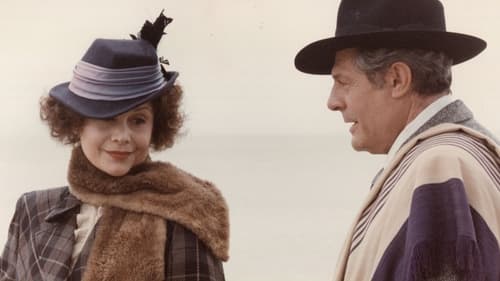
Screenplay
Leonor, a widow in a small South American town, gives birth to Charlotte, a dwarf. The mother not only provides a rich childhood for her daughter, she erases any clues her daughter might see that would lead her to think she is different (mother burns books such as "Snow White" and destroys lawn statues of gnomes). In short, she doesn't want to talk about it. The mother succeeds in creating a modern-day Rapunzel: Charlotte becomes an accomplished young woman who captures the heart of Ludovico. But then, the circus comes to town.

Director
Leonor, a widow in a small South American town, gives birth to Charlotte, a dwarf. The mother not only provides a rich childhood for her daughter, she erases any clues her daughter might see that would lead her to think she is different (mother burns books such as "Snow White" and destroys lawn statues of gnomes). In short, she doesn't want to talk about it. The mother succeeds in creating a modern-day Rapunzel: Charlotte becomes an accomplished young woman who captures the heart of Ludovico. But then, the circus comes to town.

Writer
A viceroy and an archbishop take their posts in Mexico. A local nun, Sor Juana Inés de la Cruz (1651-1695), intrigues them. The viceroy and his wife find her brilliant and fascinating. The prelate finds her a symbol of European laxity. He engineers the election of a new abbess, severe and ascetic. The virreina visits Sor Juana often and inspires her to write passionate poetry that the archbishop finds scandalous. The viceroy protects her. After he is replaced and returns to Spain with his wife, Sor Juana faces envy and retribution. A bishop betrays her, her confessor humbles her. Plague, a tribunal, and her confession as "the worst of all" end the great poet's life.

Director
A viceroy and an archbishop take their posts in Mexico. A local nun, Sor Juana Inés de la Cruz (1651-1695), intrigues them. The viceroy and his wife find her brilliant and fascinating. The prelate finds her a symbol of European laxity. He engineers the election of a new abbess, severe and ascetic. The virreina visits Sor Juana often and inspires her to write passionate poetry that the archbishop finds scandalous. The viceroy protects her. After he is replaced and returns to Spain with his wife, Sor Juana faces envy and retribution. A bishop betrays her, her confessor humbles her. Plague, a tribunal, and her confession as "the worst of all" end the great poet's life.
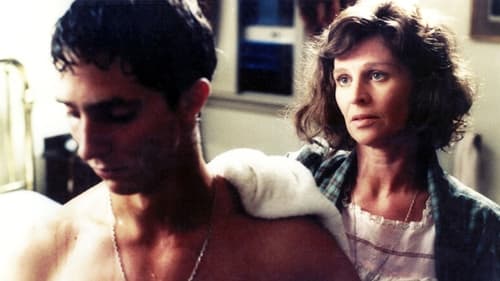
Writer
A young British woman is hired as a governess by a wealthy Argentine family. Through her position, she slowly sees how the upper class of society is slowly crumbling, and how a fascist movement is preparing to install itself in power.

Director
A young British woman is hired as a governess by a wealthy Argentine family. Through her position, she slowly sees how the upper class of society is slowly crumbling, and how a fascist movement is preparing to install itself in power.
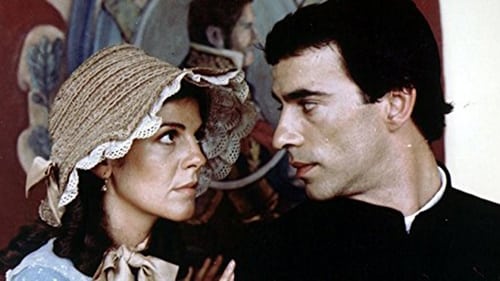
Writer
1840-й год Буэнос Айрес, Аргентина, красивая молодая девушка Камила влюбляется в Лэдислао, священника Иезуита. После борьбы со своими чувствами, он в конце концов уступает ей. Два последующих года молодые живут в уединенной деревне, где они обучают в школе местных детей. После нескольких месяцев относительного счастья, место жительства пары обнаружено священником...

Director
1840-й год Буэнос Айрес, Аргентина, красивая молодая девушка Камила влюбляется в Лэдислао, священника Иезуита. После борьбы со своими чувствами, он в конце концов уступает ей. Два последующих года молодые живут в уединенной деревне, где они обучают в школе местных детей. После нескольких месяцев относительного счастья, место жительства пары обнаружено священником...
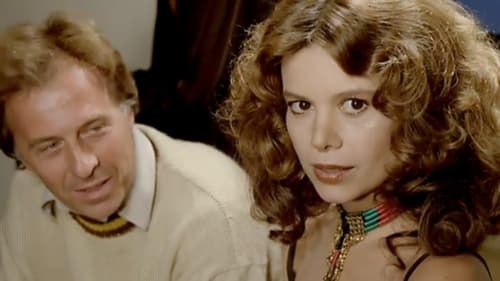
Writer
It is the story of Eleanor, a good housewife who lives with her husband, Fernando, and their two children. Deeply loves her husband and does not question the reciprocity of love and fidelity. One day, circumstantially, discovers her husband is cheating. Leonor emotionally feels betrayed and realizes that his world, based on a lie, has collapsed like a house of cards. With more fear than conviction, leaving the house, leaving little signs with instructions for their march and trust their children to the care of her husband.

Director
It is the story of Eleanor, a good housewife who lives with her husband, Fernando, and their two children. Deeply loves her husband and does not question the reciprocity of love and fidelity. One day, circumstantially, discovers her husband is cheating. Leonor emotionally feels betrayed and realizes that his world, based on a lie, has collapsed like a house of cards. With more fear than conviction, leaving the house, leaving little signs with instructions for their march and trust their children to the care of her husband.

Director
History of encounters, romances, isolation, boredom and an overwhelming passion for a married woman, that fills a sadness and leaves her husband.

Screenplay
This short film, filmed at the Rural Exhibition, is a testimony that, based on 70 interviews with girls and boys of 9 and 10 years old, investigates the behavior guidelines imposed by conventional education and the results obtained. Boys are educated in a specific way, with very different life goals, and toys reflect this discrimination: kitchens, dolls, hairdryers, cosmetic equipment, the whole domestic world for girls. Creative games, those that awaken the imagination (trains, cars, building games, men in space), are intended for boys.

Director
This short film, filmed at the Rural Exhibition, is a testimony that, based on 70 interviews with girls and boys of 9 and 10 years old, investigates the behavior guidelines imposed by conventional education and the results obtained. Boys are educated in a specific way, with very different life goals, and toys reflect this discrimination: kitchens, dolls, hairdryers, cosmetic equipment, the whole domestic world for girls. Creative games, those that awaken the imagination (trains, cars, building games, men in space), are intended for boys.

Writer
In a boring marriage a model-photographer attracts the husband and a young man to the woman.

Director
Centered on a trade fair of products for women, the work's sarcastic and biting perspective falls on both the men who build that "world" (workers and businessmen) and the women who support them. Through techniques of distancing, mostly of image from sound, the artist developed a poignant reflection on the social debasement of and discrimination against women carried out by products that supposedly exalt and distinguish them.
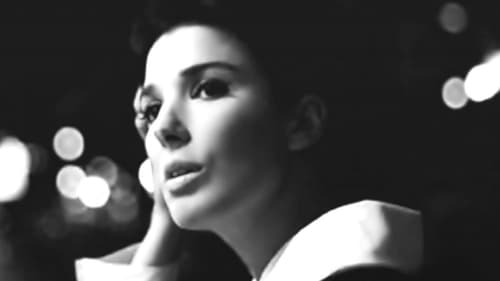
Writer
Following the death of a close friend, a woman caught in an unhappy marriage looks for ways to improve her life.
